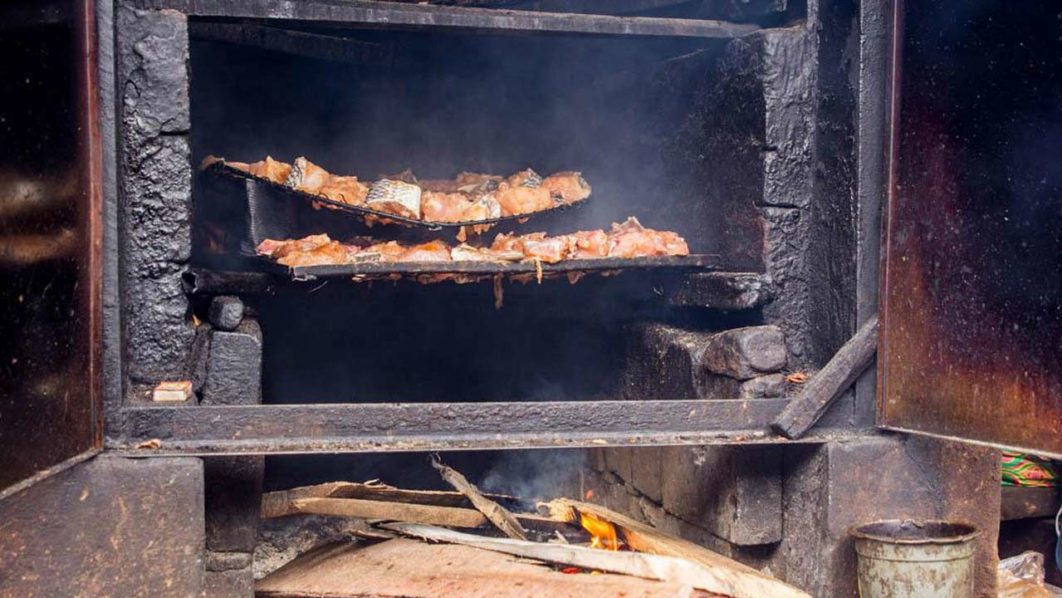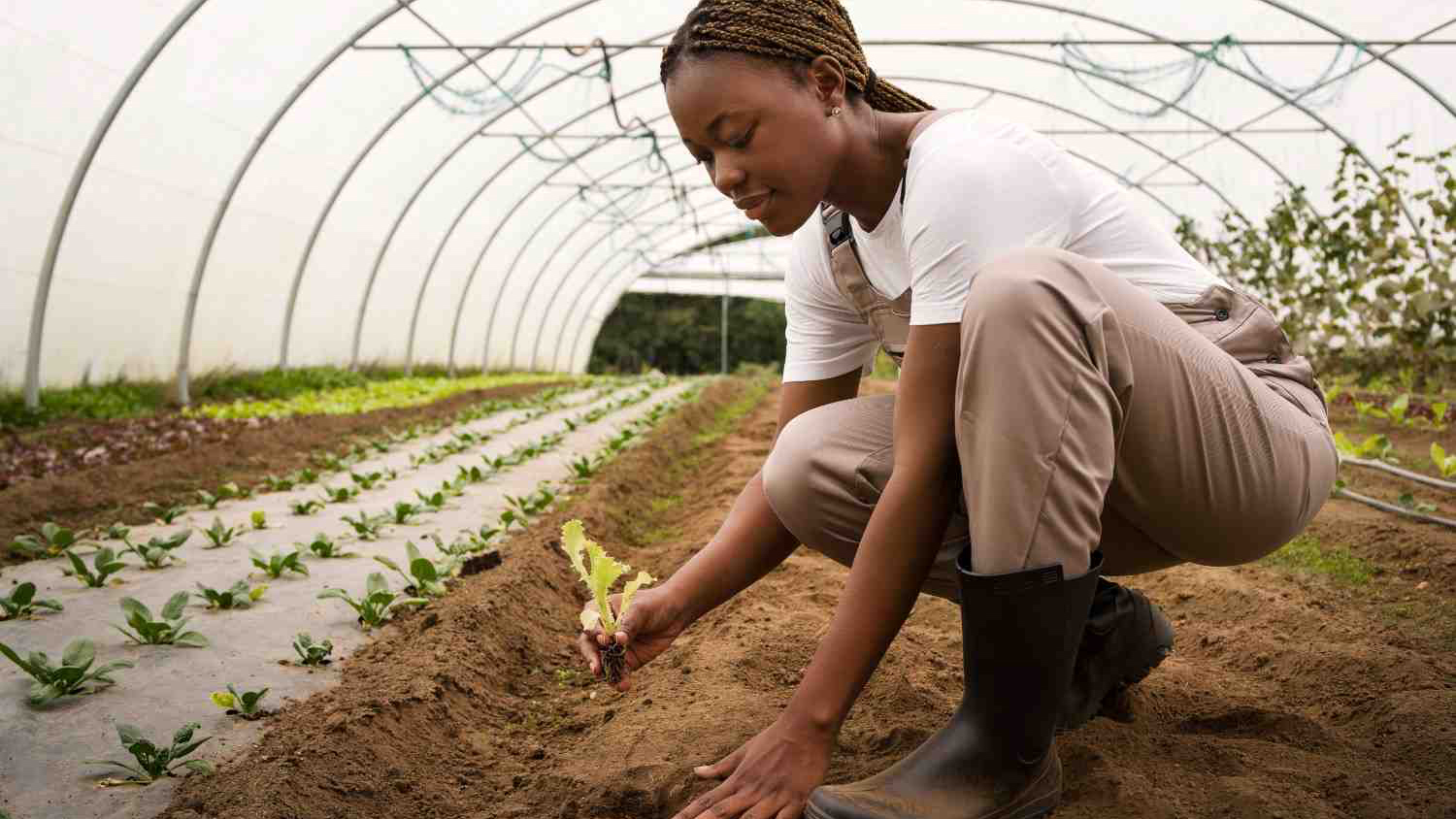
Smoking fish consumes tonnes of charcoals and firewood, and their use has been identified as a factor fueling tree felling, deforestation and environmental degradation that have combined to reduce the forest cover in Nigeria. Not only that, air pollution has worsened.
Forestry experts have said the country could boast of only a little over five million hectares that are forest-covered, moving from 4 million in the 2018/2019 wet season as a result of recent efforts at increasing tree population. They believe that in four/five years, the country would be about 10 million-hectare forest-covered.
Researchers also link more than 200,000 yearly deaths from food poisoning in Nigeria to smoked fishes and other contaminated foods, and the cost of illnesses associated with such foodborne diseases is estimated to be over $3.6 billion every year. The untimely deaths and resource wastage are definitely avoidable if the right things are done, experts have said.
Professor Shehu Latunji, an aquaculture specialist, disclosed to The Guardian that improperly processed cultured and wild fishes are part of the food poisoning.
Also, as poor processing with too much hydrocarbon deposits on smoked fish continues unabated, Nigerian producers and exporters have been barred from exporting the product to the United States and other European Union (EU) countries over concerns about ecolabel requirements. Ecolabel requires information and analysis of the products, country and processes of production and certification for wholesomeness. These constitute technical barriers to trade for access to international markets, just as fish farmers in Nigeria lament inability to sell the products locally as the COVID-19 impacts on the economy bites harder.
How toxic contents in firewood, charcoal cause cancer, pollution
The Agency for Toxic Substances and Disease Registry (ATSDR), Atlanta, Georgia, of the U.S. Department of Health and Human Services, says Polycyclic Aromatic Hydrocarbons (PAHs) are a group of over 100 different chemicals that are formed during the incomplete burning of coal, oil and gas, garbage, or other organic substances like tobacco or charbroiled meat. PAHs are also found in coal tar, crude oil, creosote, and roofing tar.
PAHs enter the air mostly as releases from volcanoes, forest fires, burning coal, and automobile exhaust. They occur in air attached to dust particles.
“Some PAH particles can readily evaporate into the air from soil or surface waters. PAHs can break down by reacting with sunlight and other chemicals in the air, over a period of days to weeks. PAHs enter water through discharges from industrial and wastewater treatment plants. Most PAHs do not dissolve easily in water. They stick to solid particles and settle to the bottoms of lakes or rivers. Microorganisms can break down PAHs in soil or water after a period of weeks to months,” ATSDR said.
In soils, PAHs are most likely to stick tightly to particles; and certain PAHs move through soil to contaminate underground water. They pose dangers to aquatic, forest ecosystems and humans. Breathing air and consuming foods containing PAHs from wood smoke, vehicle exhausts, asphalt roads, or agricultural burn smoke and eating grilled or charred meats; contaminated cereals, flour, bread, vegetables, fruits, meats; and processed or pickled foods expose humans to hazards, the agency warns.
Researchers said mice that were fed high levels of one PAH during pregnancy had difficulty reproducing and so did their offspring. These offspring also had higher rates of birth defects and lower body weights. Also, animal studies have shown that PAHs can cause harmful effects on the skin, body fluids, and ability to fight disease after both short- and long-term exposure.
The Department of Health and Human Services (DHHS) in the US also determined that some PAHs, to a very large extent, are carcinogens. Some people who have breathed or touched mixtures of PAHs and other chemicals for long periods of time have developed cancer, it claimed.
“Some PAHs have caused cancer in laboratory animals when they breathed air containing them (lung cancer), ingested them in food (stomach cancer), or had them applied to their skin (skin cancer),” DHHS said in a report.
Head of Department of Aquaculture and Fisheries Management, University of Ibadan, Prof. Jenyo Oni, corroborated that PAHs are found on fish that has direct contact with smoke during processing, and, “it could cause cancer.”
She added that “This can be minimised by not allowing smoke to touch the fish, like ours. That’s why it can be eating without washing and it won’t turn your stew black.”
A simple way to detect smoked fish with high hydrocarbon deposits is that it turns black after smoking, while the wholesome one becomes golden-brownish after processing, the Catfish and Allied Fish Farmers Association of Nigeria (CAFFAN) has explained.
Tree felling, charcoal production and environmental damage
NEXUSES have also been established between food processing, preservation/crop post-harvest management (among which are fish smoking and cassava processing) and charcoal production, deforestation and environmental degradation, which have aggravated damage to ozone layers, caused global warming and triggered climate change. Flooding, extreme weather conditions, frequent dry spells in rainy seasons and pollution are some of the consequences.
Processing of smoked fish, like cassava and others, requires firewood or charcoals, and either of this leads to felling of trees. Cumulative massive felling of trees without replenishment is one of the major factors responsible for reduction of forest cover, and inadequate forest cover triggers erosion, excessive heat, thermal abnormalities, erratic rainfall patterns, dry spells and discomfort to humans, wildlife and aquatic environments.
Dr Adeshola Adepoju, Director-General of Forestry Research Institute of Nigeria (FRIN), said during an interview with The Guardian recently: “Charcoal is supposed to be a blessing. I mean a source of foreign earnings to Nigeria if done well. In all the developed economies where charcoals are produced and used, the production is well coordinated.”
But the problem in the country is that, he added, trees are felled for charcoals and firewood but the forest is left un-replenished oftentimes, exposing the environment and humans to dangers.
Consequently, tree felling, land clearing and fish smoking activities around the Lake Chad communities, which depend predominantly on fishing and crop cultivation, have drastically affected the region, shrinking the lake and causing aquatic ecosystem disruptions, as well as loss of means of livelihood of thousands of households amid the Boko Haram insurgency. Deforestation has aggravated desert expansion, poverty and insecurity in the north-eastern Nigeria.
He added that apart from charcoal and firewood factors, agriculture in general is seen as a contributor to land clearing activities, and these are perceived as inimical to the ecology and contributing negatively to climate change.
He recommended intensive agriculture, where smaller portions of land are used intensively by using improved varieties and adequate agronomic inputs that could maximise productivity of farmers per hectare.
“In Africa, we practise extensive farming, not intensive one. The land that we are using to produce, for example, one tonne of agricultural produce, one third of it, if produced intensively, would have produced one to two tonnes,” he said.
Adepoju explained that the best ways to go about it are reaching out to the farmers and educating them about the technologies that researchers have developed in terms of inputs, varieties, timing, techniques and others that should go into the farm practice.
“It is better to combine arable crops with trees that are not arable. Arable crops are annual crops like cereals, beans, and so on. We are suggesting that they combine them,” he explained agro-forestry, adding that “If a farmer is cultivating 10 hectares of land, the first thing is that he wants to clear the land, and in clearing, he removes every tree standing. This is inimical to the ecosystem, and it contributes negatively to the climate change. But when you combine trees and arable crops, you are not going to lose anything.”
Tackling the challenges, preventing dangers
PROF. Akintola advised that adoption of homegrown technological innovations in the small-scale fish processing industry, such as solar dryers, tent dryer and multipurpose/hybrid dryers developed by various research institutes would help reduce such cases, he advised.
Traditional mud and drum kilns still dominate the aquaculture processing landscape, but they are examples of how not to smoke fish hygienically, because they cause food poisoning and exposure to processors to smoke hazards.
He recommended that the government and fish industry players should walk the talk by implementing the strategies on food processing in the National Policy on Food and Nutrition in Nigeria, and that they should have definite actions implementing the energy issue with regards to fish smoking (National Energy Policy).
“Consuming fish which guarantees safety will reduce the burden of ill health associated with cancer, among other deadly diseases. There is the need to ensure domestic fishes are safe for consumption. Let prioritise our health alongside quest for foreign exchange,” he said.
Training on good practices that are required for certification to penetrate the international markets for greater economic gains is germane to encourage productivity, value addition and economic prosperity.
Another researcher, Professor Martins Anetekhai of the Department of Fisheries, Lagos State University, urged smoked fish processors to
“keep to and comply with best practices to deliver quality product to consumers; embrace uniform standards and comparable results; sustainable utilisation of fish production and fisheries resources and production to ensure economic benefit for today and generations yet unborn.”
FRIN’s Dr Adepoju said the problem is that the ecological activities have been negative because the economies of the people are poor. “For restoration of the ecosystem,” he advised, “we must first engage the people to avoid depletion of the ecology. This will restore the ecosystem, and at the same time, benefit the inhabitants.”
He recommends that the government should set up a council to coordinate the activities of all those doing the business of charcoal production.
“If you register with such a council as a charcoal producer, and your consumption is estimated to be one hectare of a particular species of trees, you are expected to know the maturity age of that species.
“Let us assume it is 20 years the trees will take to mature, and you use one hectare per year, you are expected to have at least 20 hectares of such a tree. If you take one hectare per year, before you come back in 20 years, the first hectare you harvested would have reached maturity. In this case, no negative impact will be felt on the ecosystem,” he advised.
President of the Catfish and Allied Fish Farmers Association of Nigeria (CAFFAN), Mr Oloye Rotimi, explained to The Guardian that members of the association have been trained how to process smoked fish hygienically by international agencies.
The European Union (E.U.) sets some standards for processing and value addition to farmed catfish, and standards are well spelt out in “CODEX” for smoked catfish, Oloye explained.
He said: “As an association and a respected stakeholder, CAFFAN has benefited tremendously from the generosity of the World Bank and the EU by receiving training on processing of fish.
“In processing of smoked catfish, it has to be done within specific conditions, and these start from the set-up, which includes the layout of such facilities, hygiene, location, facilities, doors and windows placements on the building, storage, conveniences, waste disposal and management, cooling and packaging room are some of the conditions.”
Under the EU standard procedures, certain temperatures are maintained for wet fish after harvest and before stunting of the fish. Certain temperatures are required within the smoking kilns before the fish is set in. Stainless steel kiln is recommended, and in the building layout, wet materials are forbidden from coming across dried finished products.
“You see people using wet woods, painted woods and all sorts of forbidden materials in processing of dry fish. You find people using old drums used for importation or storage of chemicals for fish processing. This will cause anything, including cancer.
“Our members have been trained to produce under the best atmosphere and we are totally committed to doing that for the sake of our customers and prosperity,” Oloye added.
He argued that processors who do otherwise are not members of the association, and they process their fish beside roads, without washing and with direct smoke from firewood and charcoals.
Professor Bamidele Omitoyin, former Dean, Faculty of Renewable Natural Resources, University of Ibadan, said the university has developed best of the available technologies for safe catfish value addition, which are eco-friendly and consumer-centric.
Local technologies as solutions
The Nigerian Institute for Oceanography and Marine Research (NIOMR), Victoria Island, Lagos; the Nigerian Stored Products Research Institute (NSPRI), Ilorin, Kwara State; the National Institute for Freshwater Fisheries Research, New Bussa, Niger-State (NIFFR) and Department of Aquaculture and Fisheries Department, University of Ibadan, have developed new technologies that will go a long way to enhance healthy post-harvest management of fishery product.
The technologies, if promoted and adopted by fish farmers and processers through a meticulous awareness creation using extension services, will prevent toxic deposits on smoked fish, and will also lend a helping hand to efforts at reducing indiscriminate tree felling, deforestation and environmental degradation.
NIOMR has developed a detachable fish smoking kiln enabling hygienic collection of oil from smoked fish. A former Executive Director of NIOMR, Dr Gbola Akande, said: “The kiln is capable of offering advanced processing technique that provides processors with better working conditions and also enables them to produce good quality and highly competitive smoked dried fish for local and international markets.”
Not only is uniform heat distribution within the smoking chamber achieved, processors can also minimise their exposure to heat, burns and smoke. He added that the need for improved fish processing technologies as a coping strategy to meet the increasing stringent requirements and opportunity to play in the local and global markets; the soaring global cost of fuel energy and the attendant environmental impacts necessitated the renewed focus on eco-friendly energy interventions.
The kiln uses saw dust briquettes and has a solar powered fan for even distribution of heat within the oven.ALSO challenged by the health implications of poorly smoked fish, the Nigerian Stored Products Research Institute (NSPRI), Ilorin, Kwara State, has designed and fabricated detachable fish smoking kiln capable of using electricity, gas or charcoal.
The electro-mechanical kiln has the higher drying rate due to a stable temperature profile in the dryer. The developers explained that gas as a source of heat is not only economical but also eco-friendly, propelling them to improvise the device that has been fine-tuned.
Dr Folorunsho Olayemi, team leader of the NSPRI designs, said: “They are designed for shelf life extension in processed fish … and they provide the correct environmental conditions for the fish.”
Executive Director of NSPRI, Dr (Mrs) Pat Pessu, said the kilns and some drying tents were designed to improve the quality of fresh fish and minimize losses of crops due to poor handling and improper preservation.
NIFFR, University of Ibadan, and Federal University of Agriculture, Makurdi (FUAM), Benue State, among others, have also developed eco-friendly smoking technologies minimising PAHs on smoked fish, preventing exclusive and intensive use of firewood and charcoals, which are believed to be progresses in efforts towards forest conservancy.






